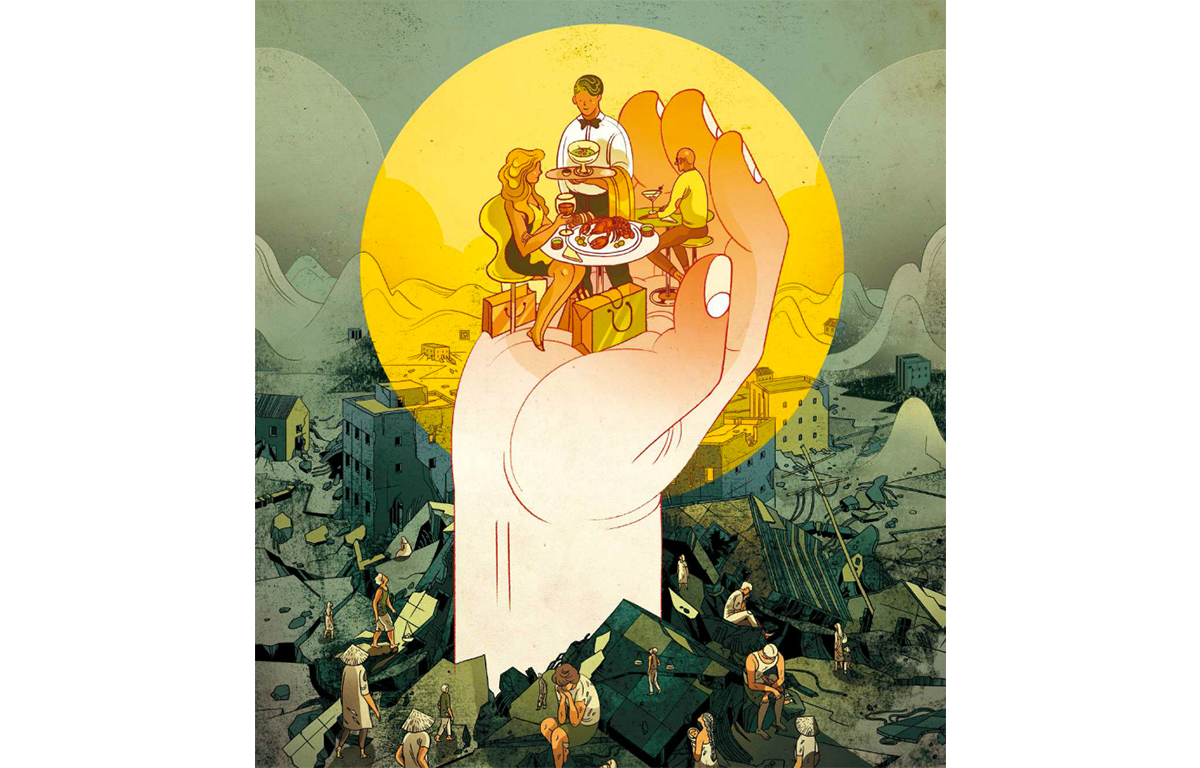Lesson Plan December 23, 2015
News Bite: Should the World Bank be supporting large companies?
Country:
Grades:
Questions for "The World Bank's Humanitarian Raid"
- Analyze the image on page 2 of the article. What do you think this article will be about? Based on the image, what do you think is the author’s purpose for writing this piece?
- Discuss the following excerpt from “Humanitarian Raid”. How do you think the World Bank should be investing its money?
"A Cold War-era institution, the IFC was envisioned by its founders as a soft-power antidote to the spread of Communism. For years, it operated as a small, little-noticed arm of the World Bank. But over the last decade, its size, reach, and influence has exploded. A World Bank program called 'structural adjustment' paved the way for its growth. This ’80s and ’90s-era initiative conditioned loans to cash-strapped nations on whether they would agree to deregulate and privatize sectors of their economies, opening a new universe of opportunities to the IFC and investors of all stripes. Between 2000 and 2013, its share of the World Bank’s total spending jumped from 13 to 35 percent. By 2014, it approved $22 billion in investments. Over the years, even some World Bank insiders acknowledge, the IFC’s priorities have shifted, with anti-poverty efforts taking a backseat. 'Poverty alleviation, does IFC see that as its primary role?' asks a former senior World Bank staffer. 'I think you could question that.' He noted, 'They’re pretending to be an investment bank.'"
- Discuss the following excerpt from "Humanitarian Raid.” What do you think are some of the benefits of working with a large corporation to end poverty? What are the drawbacks?
"In Rangoon, we visited the offices of the IFC’s top official in Burma, Vikram Kumar, a onetime investment banker for Bank of America and India’s Yes Bank. Seated behind his desk, he explained the IFC’s rationale for backing Kuok’s Shangri-La properties. 'We see it as business—enabling infrastructure, hotels—and it also fits under our jobs article, because of the number of jobs the tourism sector creates,' he says."
- Discuss the role that large corporations should be playing in communities that are fighting poverty. What companies do you see expanding in your neighborhood? How would you feel about those companies being supported by public funding?
In the article "Humanitarian Raid," journalists Claire Provost and Matt Kennard uncover and question extensive spending by the International Finance Corporation (IFC), a branch of the World Bank, that supports some of the world's largest companies. They write, "The IFC has invested more that $1 billion in luxury hotels and upscale developments in poor countries – all in the name of alleviating global poverty."
Through interviews with World Bank staff, CEOs whose companies have received funds from the IFC, and experts in the field of international aid, Provost and Kennard explore the ethics of using World Bank funding to support large corporations. The authors write, "The World Bank is supposed to help the poor. So why is its investment arm underwriting the oligarchs?"
In this lesson, students will explore the article "Humanitarian Raid" and debate the role that large corporations should play in helping to end poverty.
In this lesson, students will explore the article "Humanitarian Raid" and debate the role that large corporations should play in helping to end poverty.
The discussion topics and activities attached are suggestions for ways to quickly engage with the resources attached. Please feel free to edit this lesson.




